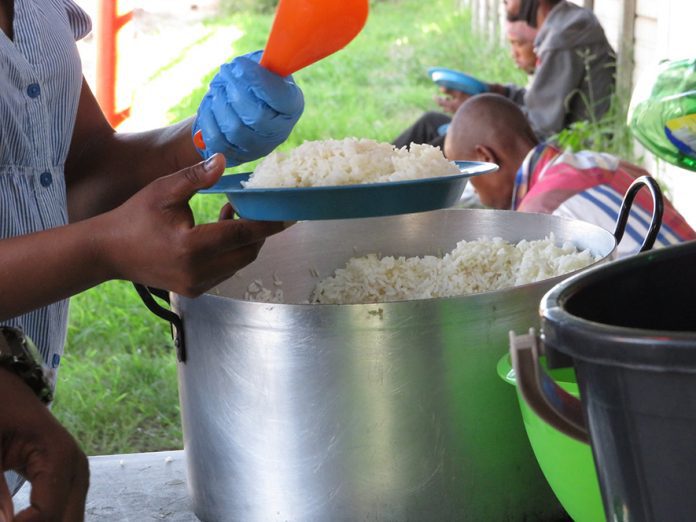Skyrocketing fuel and food prices have crippled feeding schemes across the country, forcing them to cut down on the number of mouths they feed and the number of operational days.
Soup kitchens are often run from the founders’ pockets and are dependent on donations, which have shrunk since the hike in grocery inflation.
Tshepang Care Centre in Vusumuzi informal settlement in Thembisa has stopped operating on Saturdays, as they can only afford to run their kitchen on weekdays.
The organisation’s founder, Sarah Sibiya, said they have been operating since 2013, feeding at least 500 children a day.
“Sponsors started pulling out when fuel kept on increasing because they are now struggling to keep up with delivering groceries to us as often as they would.
“The grocery prices are also going up uncontrollably while their salaries are not going up, so it really makes it difficult for them to sponsor us while they struggle to maintain themselves,” said Sibiya.
She said they survive by getting food that is nearing expiry date from grocery retailers. Sibiya said some sponsors are still on board but she is worried whether the feeding scheme will continue should those sponsors also pull out.
“Like today, we are cooking five 10kgs of rice and some soya mince to feed all these children. We spend so much a day, I sometimes struggle to keep up with how much we spend a month, or at least a week. I am just happy that women from this community always avail themselves and volunteer to help us cook.”
Annual consumer price inflation jumped to 7.4% in June from 6.5% in May, mainly driven by rising transport and food prices, Statistics South Africa said.
The June inflation rate is the highest since May 2009. The main groups contributing to high food inflation in June were bread and cereals, meat and oils and fats.
Cape Town-based Ladles of Love soup kitchen founder Danny Diliberto said they need R2-million to keep up with their monthly expenditure and maintain the provision of food to 10 000 children a day from their home soup kitchens and organisations they supply with food.
The non-profit organisation distributes bulk food parcels. Diliberto said it becomes hard for them because they need to deliver and collect regardless of the high fuel price.
“We feed 700 people a day from our main soup kitchen in the city and we generally spend around R250 000 a week to feed everyone. We need more for campaigns to attract donors because marketing is important to keep these soup kitchens alive.
“But unfortunately we have cut distribution to some of the organisations from three times a week to once or twice, and some of them have reduced their operational days because we cannot keep up. Electricity, oil and ingredients cost an arm and a leg.”
Follow @SundayWorldZA on Twitter and @sundayworldza on Instagram, or like our Facebook Page, Sunday World, by clicking here for the latest breaking news in South Africa. To Subscribe to Sunday World, click here.



